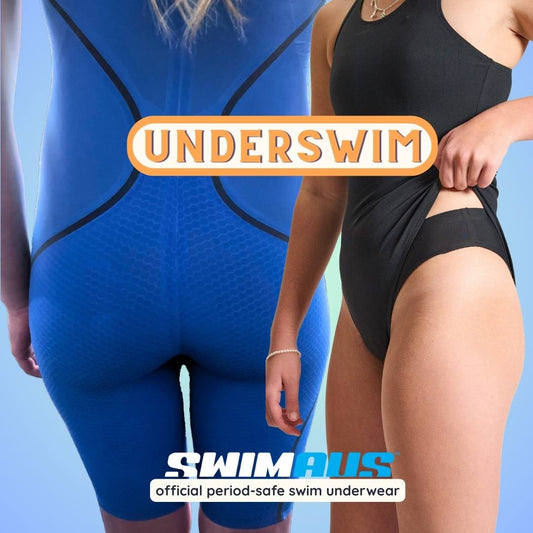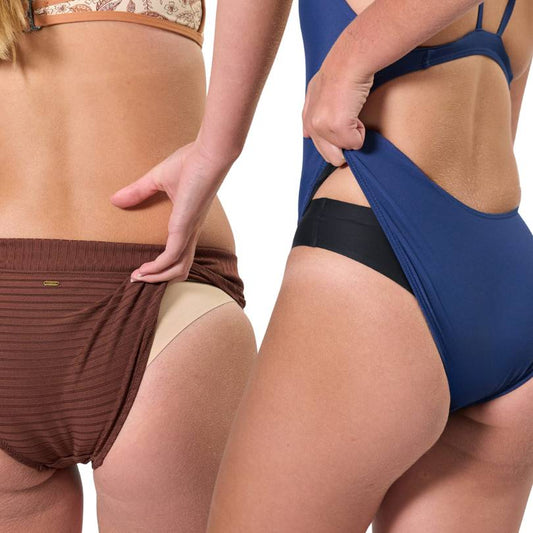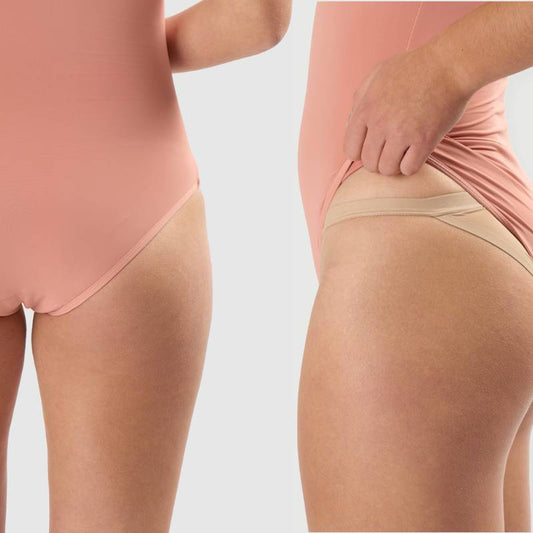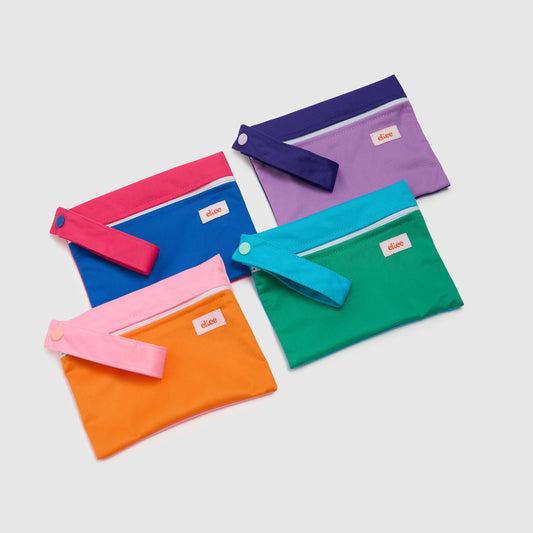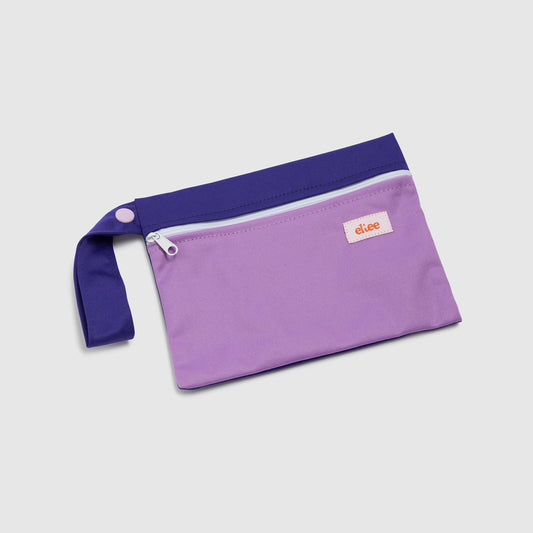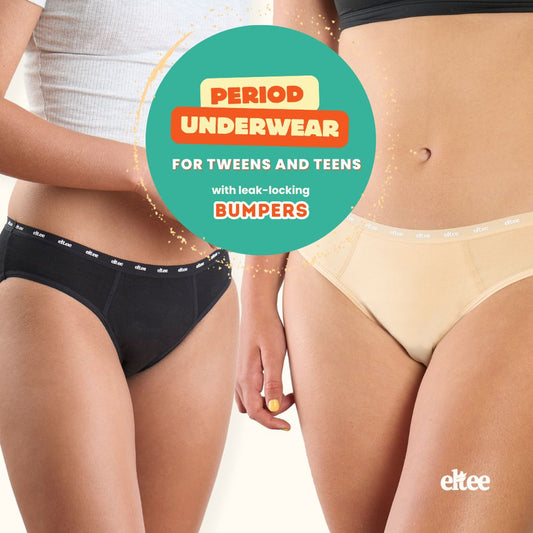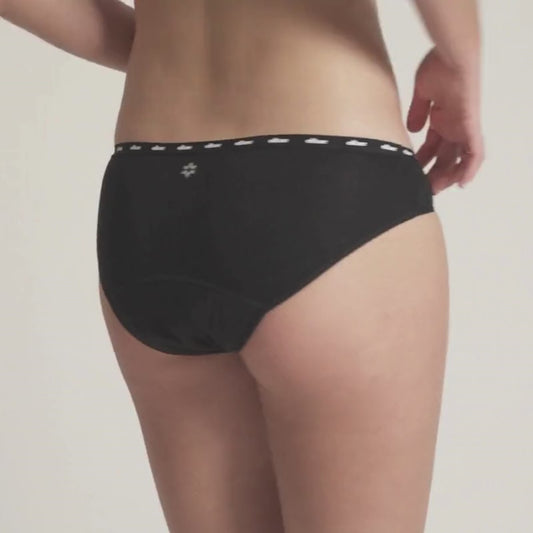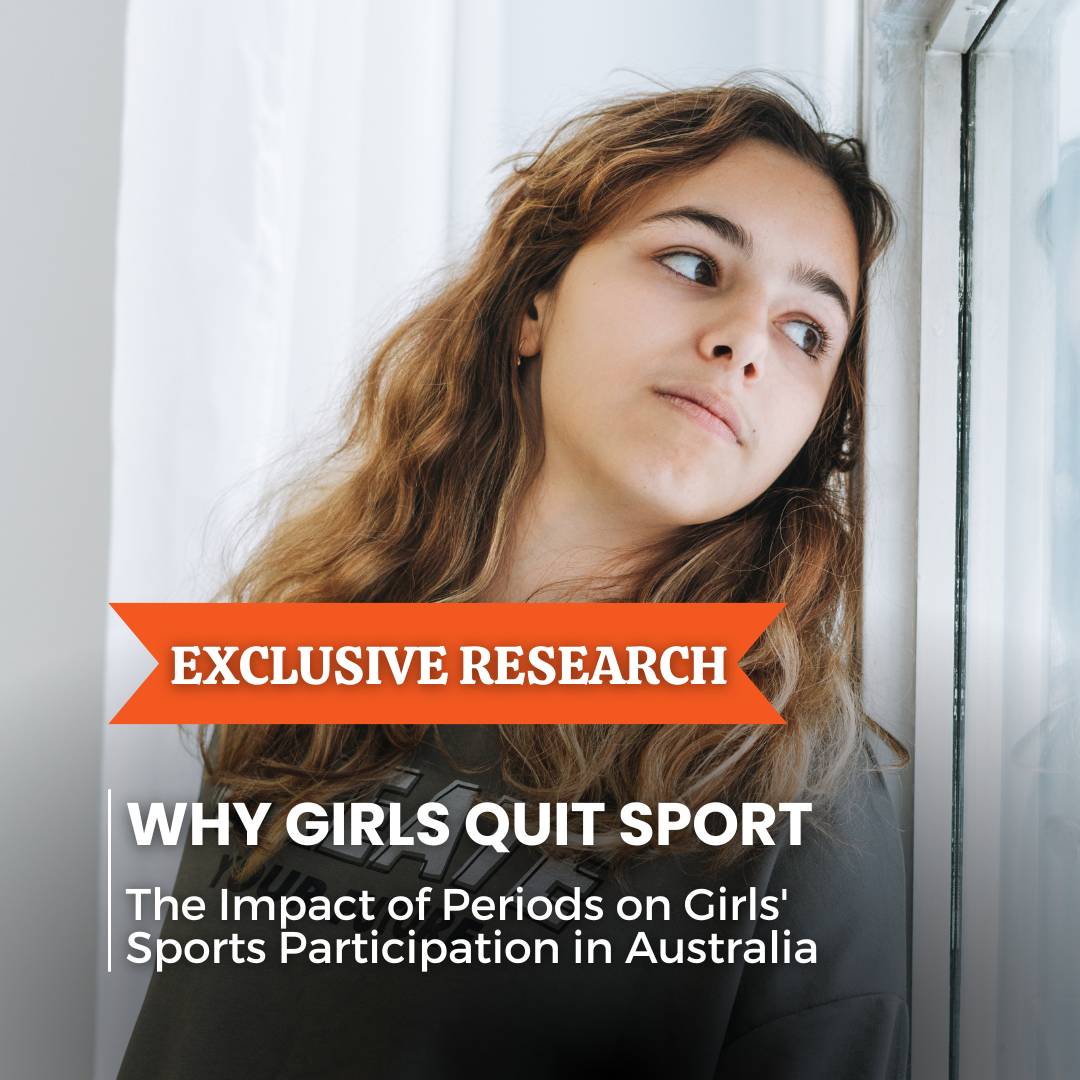
Why Girls Quit Sport & How We Can Beat the Dropout Rate

What The Numbers Tell Us
Puberty, specifically menstruation, has an enormous impact on girls' participation in sports but even we were shocked by what our survey participants told us. Our results revealed that an alarming 63.9% of tween and teen girls have quit or avoided sport or physical activity due to their period.
Our investigation delves into why girls quit sport, with a specific focus on how their period struggles impact sports participation. According to the data we gathered, swimming tops the list with a staggering 67.6% (994 girls) opting out due to period-related concerns. On a similar note, gymnastics sees 35.1% (517 girls), while dancing has 28.4% (418 girls), and netball encounters a 25% (368 girls) dropout rate. These numbers highlight a significant trend: the more revealing the sport's uniform, the higher the abandonment rate.
Interestingly, sports with less form-fitting attire, such as cricket, hockey, Aussie Rules, and tennis, show markedly lower avoidance rates. This suggests that uniform design plays a crucial role in a girl's comfort and confidence during her period.
The data unequivocally demonstrates a strong correlation between uniform type and sports participation, urging us to consider more inclusive design solutions. Understanding these numbers is the first step towards making sports a more welcoming environment for all girls, regardless of their menstrual status.
Curb Quitting with Communication
For most of the girls surveyed, menstrual cramps were the leading cause of their avoidance of sports when they had their period. A total of 70.6% of girls, or 1039, gave this as the main reason for avoiding sports or tapping out all together during that time. Fatigue and tiredness (or 'feeling zonked' as one girl put it) were also factors that affected 67.4% of the girls, or 991.

- "Having cramps and feeling tired stopped me wanting to be active."
- "Cramps are the worst."
- "Cramps made me dread going to training as I felt like I would be pushing myself too far."
- "Cramps, felt weak at the gym, fatigued, not concentrating.'
Girls need the support and down-to-earth guidance to feel utterly at ease and clued-up about their bodies. We must smash the taboos surrounding menstrual cycles, which does nothing but stifle and demoralise them. Coaches, parents and clubs can build these amazing girls up by getting clued up on the physiological aspects affecting their cycles and the legitimate impact it has.
We should recognise their unique challenges and build a safe haven to chat about the issues and dish out adaptive training options - think adjusting weights and intensity or dialling down the impact.
On the flip side, there are days when those hormonal tides boost their energy and strength. Approaching their ups and downs with a scientific, inquisitive mind can help them reach their fullest potential and beyond.
Leaks and Lows
Issues related to self-consciousness and knocked confidence rated highly on the 'quit-o-meter'. Girls felt the following challenges had a strong impact on their reasons for quitting sport.
- 59.2% of girls admitted that ‘period dramas like leaks’ were a major concern.
- 58.6% girls attributed ‘feeling restricted and awkward because of period products” to their period-related woes.
- 57.4% asserted that they strongly feel like they are ‘unable to perform at their best’ when they’re on their period.
And a staggering amount of girls were freaked out by the potential bulkiness of wearing a pad.
Padding It Out Doesn't Work
The fear of wearing bulky pads was the third most common worry among the girls, with 64.6% girls expressing embarrassment and discomfort in relation to managing their period using disposable pads.
- "Just very uncomfortable and very stressful. It’s easy to get paranoid when you’re on your period and you’re moving around a lot. Not worth the stress or the discomfort of certain products."
- "Having to worry if I had bleed through my bike pants and if anyone could hear or see my pad."
- "Bulky pads make being active very embarrassing."
Sometimes girls choose the thinnest absorbency pads to reduce the bulkiness, only to end up dealing with leakage (or the worry that it'll happen).
Terrified of Tampons
Girls also talked about being scared of inserting tampons and having no idea how to use them, saying lots of variations of the following:
- "Tampons are scary."
- "My mum didn’t let me use tampons so I could not swim on my period."
- "Wasn’t able to fit a tampon inside for swimming as it would hurt."
- "I don’t want to wear a tampon in case it pops out."
- "I'm too young to wear tampons."
The worry and fear among girls where tampon use was concerned was clear by the fact that 7.4% of the girls who left an open-ended response to the question, 'How did having your period affect your sport or physical activity?' confessed issues with using tampons.

These findings are an indication that more needs to be done to provide girls with the necessary support, such as adequate sanitary provision and education, to enable them to participate in sports in a ways that are reliable and discreet.
Girls have to know how to choose the right absorbency and type of period support that will keep them comfortable and give them the reassurance to get on with their lives without obsessing about overflow.
Age can be a concern for parents when it comes to allowing girls to use tampons, but if that concerns is around safety, there's nothing to fear.
"There is no certain age that girls can use (tampons) — they can use them at any age," says Lisa Klein, a pediatrician and founder of Turning Teen - a program that helps mums connect with their daughters on those typically awkward eye-roll inducing topics like puberty and their changing bodies.
Klein also has three great tips to set girls up for success when they're giving tampons a bash for the first time:
- They have to know what a vagina is and be comfortable with that word and having one. Sounds basic but it's critical. Name the parts, normalise the words.
- They must be comfortable enough to touch themselves in order to insert a tampon.
- They have to know how long to leave a tampon in.
Tampons should be changed every 4-6 hours. Girls can set an alarm on their phone or smartwatch or make a note somewhere they can't forget.
Period underwear can provide a helpful alternative to the challenges pads and tampons pose. They've undergone significant evolution to become a reliable and revolutionary alternative to traditional period products, offering unparalleled comfort and flexibility.
Most options available can absorb up to 10-15ml of liquid – the same as regular disposable pads.
Positive Period Education
- 79.7% of girls said they'd feel uncomfortable talking about their period challenges with their coach.
- 82.6% of girls said they'd feel uncomfortable talking to their sports or PDHPE teachers.
With cramps and fatigue identified as factors that lead girls to shun sports, the fact that they don't feel like they can speak up about it is a missed opportunity to meet girls in the middle before they pull the pin all together.
But here's lies a big opportunity.
Coaches and educators have a unique position of influence – they can genuinely impact these girls' confidence by teaching them how to navigate their menstrual cycles effectively. Imagine a scenario where a coach not only encourages physical fitness but also integrates education about periods into regular training discussions.
By normalising these conversations and offering practical advice on dealing with cramps, selecting the right menstrual products, and timing workouts around their cycle, educators can demystify menstruation and make it a less daunting topic.
Dads Matter
Even more alarming, 74.8% of girls said they wouldn't confide in their own father! The reasons behind this silence are varied; some girls said they felt ashamed or embarrassed, while others felt that their dads weren't supportive enough or didn't understand their needs. One girl said,
- "My dad often shames me for asking for him to buy me pads saying things like, 'why didn't you tell me beforehand,' even though my period is irregular, so I tend not to talk to him about it.
Life's Too Short for Shame
Coaches, teachers, dads... they all have a role to play in smashing stigmas. Passing her period off as 'TMI' is a missed opportunity to deliver appropriate and timely support that would go a long way to improving sports participation.
That's not to mention eliminating the silly and avoidable barriers that become insurmountable roadblocks for way too many young female athletes.
Comfortable Clothing = Confidence
The survey found that sports uniforms also had the potential to fill girls with dread.
Swimming was the sport with the highest avoidance rate, and other sports like gymnastics, dancing, and netball also had high avoidance rates because of the tight-fitting or short uniforms worn for these sports.
Girls responded with comments like,
- "Being in a leotard for dancing or wearing tight shorts and short skirts is hard because my pad is visible"
- "I had to stop swimming because I didn't want to wear tampons and pads in the pool are unhygienic and impossible to hide anyway so it would be embarrassing."
Girls also said that wearing white uniforms was less than ideal.
- "Typically, my uniforms in all of the sports I’ve played have white bottoms, which when you aren’t expecting you period never goes well".
Uniforms are meant to create an equal playing field and create a less distracting environment. I think we can all agree then that form fitting, high cut, white uniforms for girls and women who compete in sport and menstruate are falling short of the objective by quite a few playing fields.
Our survey results are a wake-up call for all stakeholders to address the reason why girls quit sport, especially during their period.
It's time for schools, sports organisations, and parents to step up and provide the support girls need to stay engaged in sport.
Let's start by refining uniform policies to make sure girls feel comfortable in what they made to wear. Period swimwear for girls can make their lives so much easier and allow them continue sports during puberty too. Over and above that, let's make period products easy to access and make sure they're suited to their needs. But it doesn't stop there. Girls need to feel safe to ask questions and talk openly about their periods and associated challenges - and as it stands now, many of them don't.
A culture that accepts periods as the very normal things that they are and make it comfortable for girls to navigate and optimise their menstrual cycles without awkwardness, shame and secrecy, will be a culture that sees the full extent of just how extensively girls can rock all aspects of sports and exercise from girlhood through their teen years and into adulthood.
It's time to arm coaches and parents with the knowledge they need to understand how girls' bodies change during puberty. If we can nail this, we can rise to the challenges these changes can pose and be an ally to girls by making sure they have the resources they need to continue participating and developing in their sport.
It's on all of us to create an inclusive environment that allows all girls to participate in sports without society, structures and stigma letting her down and zapping her sporting staying power.



